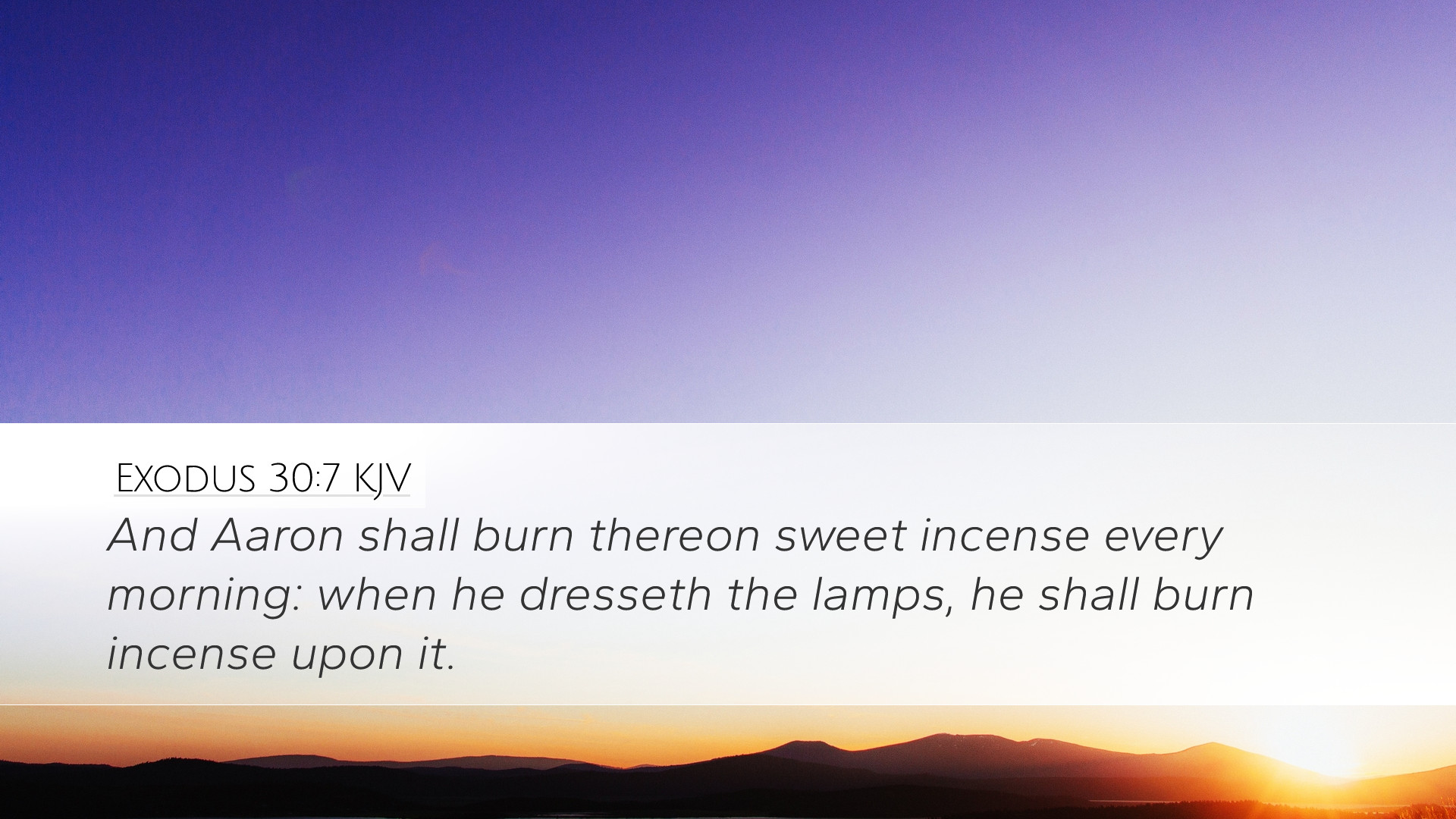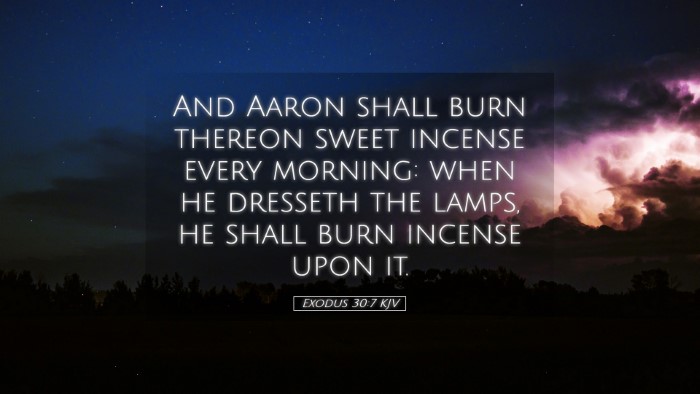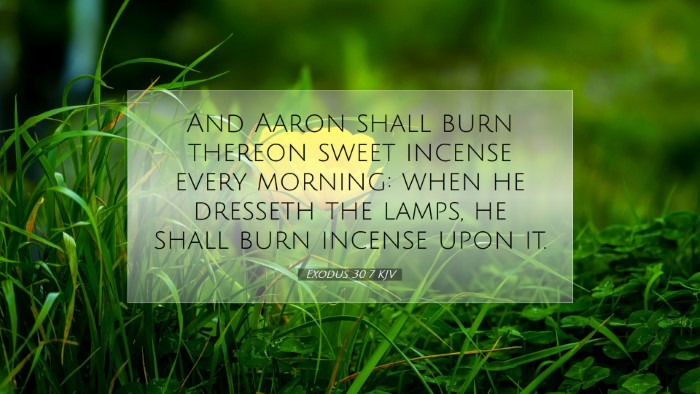Exodus 30:7 - Commentary Insights
Exodus 30:7 states: "And Aaron shall burn thereon sweet incense every morning: when he dresseth the lamps, he shall burn incense upon it." This verse instructs on the duties of Aaron, the high priest, concerning the continual burning of incense in the Holy Place. The significance of this action is multilayered, as it holds both spiritual and practical implications.
Significance of Incense
According to Matthew Henry, incense symbolizes the prayers of the saints, ascending to God as a pleasing aroma. The act of Aaron burning incense every morning illustrates the necessity of constant intercession and communication with God. It serves as a reminder that worship is both a duty and a privilege bestowed upon God’s chosen.
Albert Barnes adds that the burning of incense signifies the sanctification of the priestly duties. The sweet smell of the incense represents God’s acceptance of the worship and the need for purity in spiritual matters. The daily ritual emphasizes that God desires not just any worship, but worship that is done in accordance with His commands.
The Role of Aaron
In the context of the Levitical priesthood, Aaron’s role is pivotal. Adam Clarke notes that Aaron was not just any priest; he was the anointed high priest tasked with specific ceremonial duties. His responsibility to burn incense every morning indicates the ongoing need for atonement and the setting of a sacred atmosphere necessary for effective worship.
- Intercession: Aaron’s daily act symbolizes intercessory prayer, highlighting the importance of representing the people before God.
- Preparation: The preparation of the lamps is metaphorical for the illumination of God's truth in darkness, demonstrating the need for God’s presence in the daily lives of His people.
- Perpetual Worship: The requirement that this be done each morning emphasizes the need for consistent and devoted worship in our own lives.
Symbolism of Morning Worship
This verse also underscores the timing of worship. Matthew Henry reflects on the significance of "every morning." Morning worship can be seen as a fresh start, dedicating the day to the Lord. By beginning each day in worship, believers are reminded to pursue holiness and righteousness throughout their daily activities.
Furthermore, Albert Barnes points out that the morning incense represents the chief time for prayer. Just as the sun rises to dispel darkness, so too does prayer and worship rise to bring divine intervention and guidance into the believer’s life.
Practical Application for Believers
The directive given to Aaron can be applied to modern believers who are part of a royal priesthood. As discussed by Adam Clarke, it is critical for Christians to understand that their lives should be characterized by constant prayer and worship. The idea of burning incense is a daily commitment to placing our lives before God and acknowledging His presence.
- Daily Devotion: Incorporate time for prayer in the morning to set a spiritually focused tone for the day.
- Consecration: Just as Aaron had to ensure the incense was pure, believers are called to maintain purity in their worship and daily conduct.
- Community Intercession: Encourage collective prayer within the community to foster unity and divine guidance.
Conclusion
The actions prescribed in Exodus 30:7 provide profound insights into the nature of worship, the role of spiritual leaders, and the importance of daily dedication to God. These themes resonate throughout scripture and remain relevant for pastors, students, and theologians today as they navigate their personal and communal worship practices.
Through the lens of this verse, believers are encouraged to cultivate an ongoing relationship with God marked by prayer, purity, and worship, embracing the role of intercessors in a world that desperately needs divine light and leadership.


